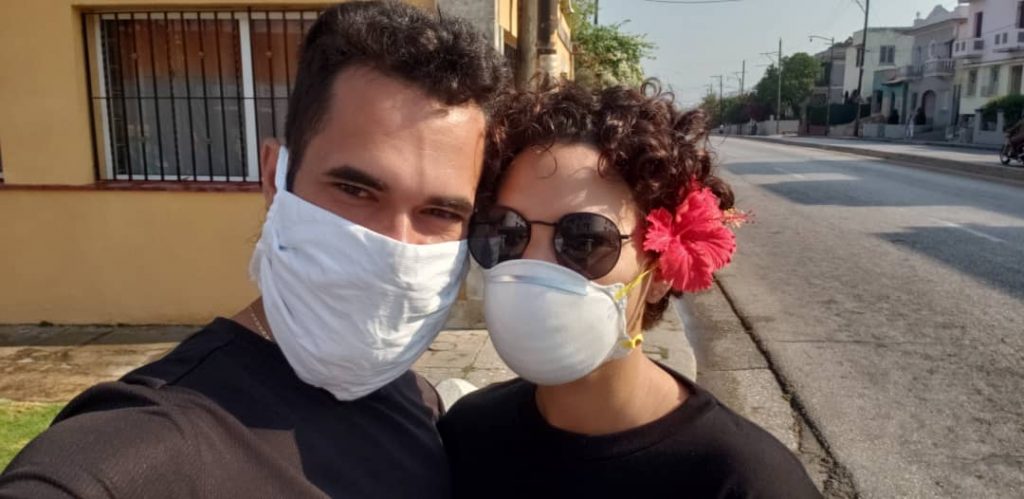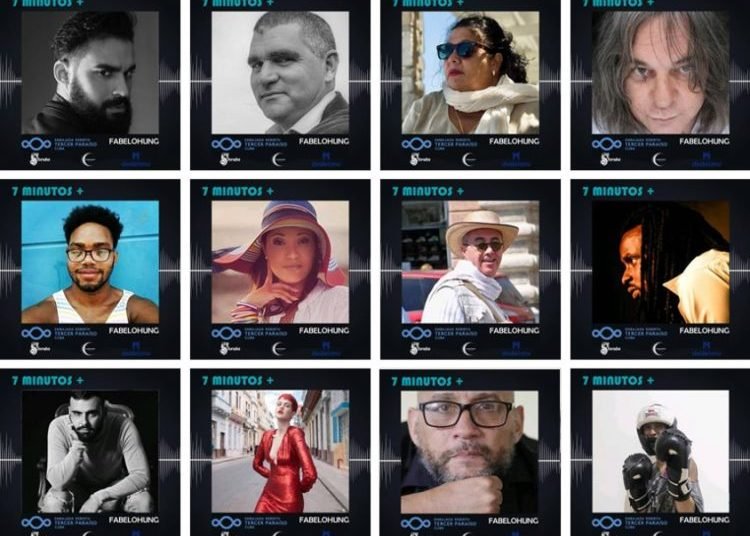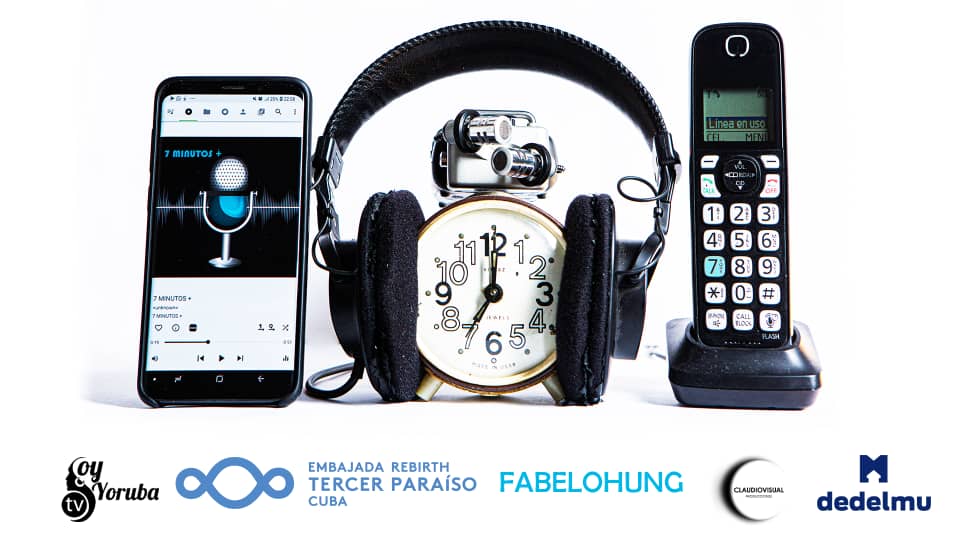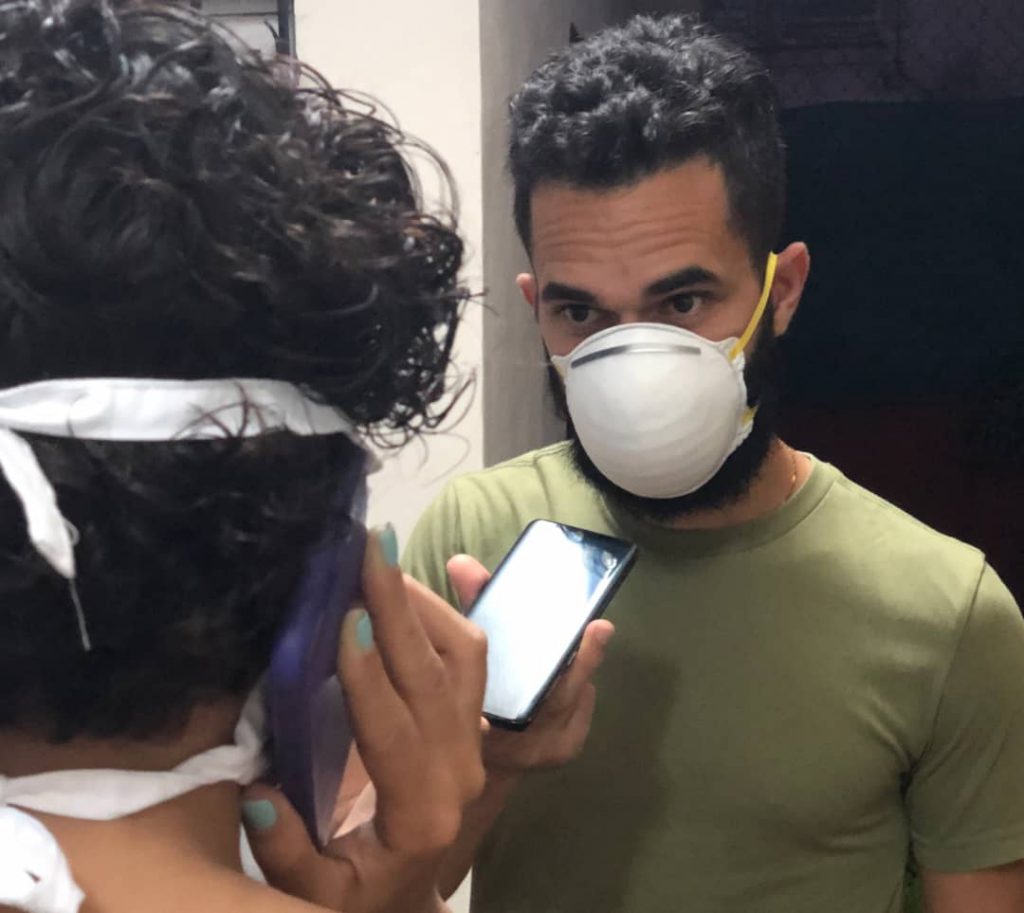COVID-19 has changed the world. It has infected millions, it has caused the death of hundreds of thousands, it has spread fear and suffering along with its invisible perpetrator: the SARS-CoV-2 coronavirus. Borders from everywhere have been closed to try to contain the deadly invasion; trips, events, and classes have been canceled; long confinements and restrictions have been imposed, which, after becoming more flexible due to the apparent improvement, have had to be resumed in many countries in the face of new waves of the disease. As it has also happened in Cuba.
People are not the same today either. The quarantine has changed their life dynamics, priorities, and interests. It has forced them to adapt to a different, more oppressive and claustrophobic reality, to multiply virtual interactions over physical ones, to be creative and willing to overcome the limitations imposed by the pandemic, to persevere in holding on to who they are, what they do, and what they want, even from home; and to find an opportunity to grow, even in adversity. As it has also happened in Cuba.
Mariacarla Dausá and Claudio Peláez found that opportunity. She (a producer) and he (a filmmaker), both 29 years old, decided to join forces in a project that would keep them creatively active during such a complex circumstance, using the tools at their disposal, transforming the technological and spatial disadvantages into strengths. They were looking for a project that would allow them to do what they like: Storytelling – even though now they couldn’t do it through images, but (only) through sounds, in a podcast format. This way would allow them to reach many people through the voices of a few – some well known; others, not so much; but all with a remarkable portfolio, without a doubt – people who were also going through the quarantine, like themselves, like everybody.

“The idea of 7 minutes of your quarantine was born at the beginning of the pandemic” – says Claudio, an OnCuba collaborator who is now the one being interviewed -. It was born out of curiosity; we wanted to know how Cubans were living that moment; and also with the intention that their experiences became a reference for those who listened to the podcast, serving as a tool to help them deal with the quarantine from their homes and their individuality. For this reason, we were interested in talking with the guests not only about their work and their life in general but also about their routine at this time. We would ask about the movies that they were watching or the books they were reading, or even what food they were preparing. We wanted people to be able to recognize themselves in the voices of those we interviewed, and also leave a testimony of how the quarantine was being lived in Cuba”.
Why did you decide on the audio format and the seven-minute tentative time for the podcast?
We decided to choose the audio format because it was cheaper for us and because the video involved an interaction that was more difficult to execute at the time due to the pandemic. Later, we also understood that the audio gave more intimacy and confidence to those we interviewed. That decision has ended up being a strength of the project. I feel that the power of the voice has allowed us to get much closer to people that we would have never met if it wasn’t for this daring project.
As for the idea of seven minutes, it was because at first, it seemed like a prudent time to create empathy between the interviewed guest and the audience. That way, the people who listened to us could feel more engaged with the project, and the message would successfully get to them. Then, we realized that no Cuban speaks seven minutes in an interview, that we are all very talkative, but that did not represent a limitation because we always thought of the podcast as something that is not rigid, even though its name marks a time that we can never meet.
How has the creative process been in a limited scenario caused by COVID-19? How complex has it been to find the necessary support to carry it out?
It has been difficult because it is practically a daily podcast, but we have been learning and avoiding obstacles as we go. In the first season, we did everything from the cell phone: the calls and the podcast edition. The cell phone was our only and most important work instrument, the tool for the creation, and the distribution of each interview. But for the second season – which is where we are now -, we have worked a little more in the production, and we have used Adobe Audition, a program to record and edit the sound that also allows us to improve the quality of the audio.
We decided to end the first season always thinking of a second one. But this time we decided to seek support and financing that would help us cover expenses. We wanted to see how we could manage to sustain a project like this, which was born from our initiative and resources, asking for help in a context of crisis such as the pandemic, in which people save their money because they do not know for how long this situation will last, and most of them tend to be more distrustful when it comes to contributing. In that attempt, we found some people who find it difficult to support a project that is not well known, especially in these circumstances, but we also found others who bet for it, because, like us, they value the effort and relevance of what we are doing.
I have to thank Juanito Delgado, creator of the ‘Detrás del Muro’ project, who did not hesitate to support us and also involved other friends like Roberto Fabelo (jr.); they have made possible the existence of this second season. We also need to thank ‘Tercer Paraíso Cuba’; they got involved since the moment we told them about the idea, and we are also grateful to a friend in Mexico who has given us support from the project ‘Soy Yoruba’. In some way, 7 more minutes, which is what this second season is called, is an exercise on how to create and make a living from a communication effort in the middle of a moment of crisis, involving others in this endeavor.
How is the selection process and interaction with the guests interviewed?
The selection of the guests is very diverse. It ranges from people who are well known, who have a systematic presence in the media, to others who are less known but who have an important job, with very positive experiences to share. We try to keep a balance between men and women, between the youngest and the least young, and we try to cover as many professions as possible, although most of them have been from the cultural world.
We also want the project to be a space where diverse voices can be found, people who even shake what we traditionally believe or think on some topic. If I have to choose one lesson that the podcast has taught me, it has been the possibility of meeting and interacting with some people of whom I could have had a preconceived idea, an opinion that has changed, mostly for the better, after interviewing them. And, I hope, that also happened at least to a part of the listeners. So, these two seasons have also been a space to break down personal prejudices, and an opportunity to thank those who agree to share with us, and with the audience of the podcast, more than seven minutes of conversation.
As for how to contact potential guests, we often do it through Facebook. Most people do not respond, so if someone reads this interview and has a message from me in their chat inbox, I would appreciate them letting us interview them. It may sound simple, but it is exhausting to contact and interact with people. You spend most of the week thinking about who the next guest might be, trying to gain their trust, making them understand what our space is about, and what is the importance that we see in these moments. I guess doing it is part of the process of the challenge of carrying out the project, and it is fun and enriching at the same time.
Where in the digital ecosystem can your podcasts be listened to? What reactions and feedback have you received so far for this work?
‘7 more minutes’ is on air from Monday to Friday, through two channels that we have created: one on WhatsApp, and the other on Telegram. They are networks that allow audio distribution and that, at the same time, do not use many megabytes of the audience’s internet to whom we want to address primarily, which is the Cuban. For the reasons that everyone knows, people in Cuba cherish their megabytes like it was gold. We have tried to respect that so that they don’t have to click too many times to hear our podcast.
I always share the new chapters on my Facebook, with a photo of the guest, and the links that lead to the WhatsApp and Telegram channels. At some point, it had a presence on YouTube in the first season, but we realized that it did not have the impact we wanted, and it required incredible internet connection efforts. The stars had to align themselves so that we didn’t lose the wifi connection and we would be able to upload the video. Then, we decided to go for lighter platforms when uploading and consuming the podcast. In this second season, OnCuba has replicated some of our interviews. Anything that helps promote our podcast is very much welcome.
As for the feedback, we can infer from the comments we have received that the audience is very grateful for the project because they can learn more about the people they admire, artists, writers, learn about their lives in the midst of the pandemic, or learning from less famous people who are doing useful things for society at a time like this, through this platform. Many guests have also appreciated the opportunity and have seen the dialogue as a moment of self-evaluation of what the situation created by the coronavirus has represented for them.
And you? How do you evaluate what you’ve done so far? What personal and professional benefits do you have, and, would you like them to stay as a result of the project?
The truth is that we are very happy. As I was saying at the beginning, having achieved financial support from friends, and involving others who did not know about the project, but who joined because they recognized and identified with its values, has been comforting, and it has also left a precedent on how to carry out an initiative like this. It requires heart, putting everything from your heart, but once you see the outcomes and the people who appreciate it, you enjoy the results a lot.
We have also learned how hard it is to keep a daily space alive, because you are all the time organizing, planning, thinking about the next day, trying not to repeat the same profession or the same guest profile, and then, recording and editing, polishing the details so that what is published has the highest quality. And all that, in the middle of other occupations, and also, of our personal lives. It has been intense.
As for earnings, the first gain is to be able to leave a testimony of the days that we are living, which have been tough and exceptional. I think that if someone in the future wants to know how we live the pandemic in Cuba, they could do so by listening to the ‘7-minute interviews of your quarantine’, and ‘7 more minutes’ episodes. That is our contribution. Personally, the project has allowed me to meet many men and women with different ways of seeing and feeling reality. From each of them, we have learned something. We would love it if those who have been able to listen to the interviews have discovered themselves in their lights and shadows. We would enjoy knowing that these testimonies served them as something positive, both to carry out new projects and to see reality differently.
What prospects do you have with the project? How far do you plan to go?
So far, we have done two seasons: the first, with 49 interviews plus a summary podcast episode. 50 chapters in total. And the second season, which is already quite advanced, we also plan to reach 50 chapters. We are already planning a third season. And, for that, we are planning to touch many doors, windows, basements, and rooftops once again.
Unfortunately, the pandemic continues, and the most recommended thing is still staying home as much as possible and complying with hygienic-sanitary measures and physical distancing. Therefore, the message that we try to share in the interviews is even more valid today. We intend to improve what we do and to reach more and more people. We want to go step by step to achieve that goal, for as long as the quarantine is necessary.












